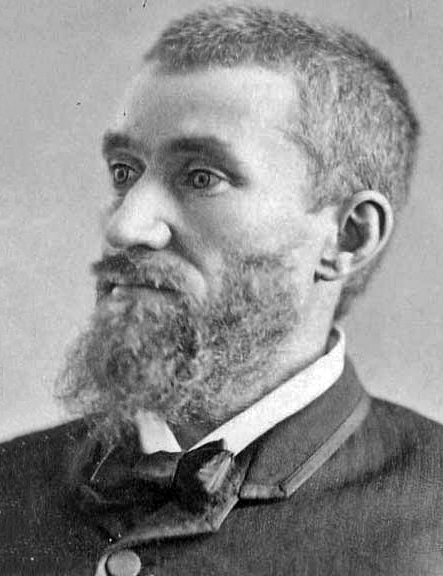Antebellum Non Conformists - Transcendentalists and Mormon Pioneers [1820-60]
Two unconventional utopian experiments founded on individual inspiration, self-reliance, dissent, and
nonconformity create a strong sense of unity and shape the American identity
The Transcentalists
Writers like Ralph Waldo Emerson and Henry David Thoreau questioned the doctrines of established churches and capitalistic habits of the merchant class.
They argued for a mystical and intuitive way of thinking as a means of discovering one’s inner self looking for the essence of God in nature. They could “transcend” experience and reason though their intuitive powers to discover universal truth.
The Transcendentalists saw beauty in nature, but ugliness in a materialistic society full of greed and avarice (excessive or insatiable desire for wealth or gain)

The Brook Farm (1841) George Ripley launched a communal living experiment at Brook Farm in Massachusetts.
Goal – achieve a more natural union between intellectual and manual labor
Results Never grew beyond 150 members. A bad fire and heavy debts ended the experiment in 1849
The Mormons – The Church of Later Day Saints founded by Joseph Smith in 1830. Smith gathered a following in Palmyra NY and eventually migrated to Ohio, Illinois, Missouri and eventually Utah.
Quotable American Pageant
"The smoldering spiritual embers of the Burned-Over District kindled Joseph Smith, a rugged visionary, who reported that he had received some golden plates from an angel"
"His cooperative sect rasped rank and file Americans, who were individualistic and dedicated to free enterprise"
The Mormons arouses further antagonism by voting as a unit and drilling their militia for defensiveness purposes."
"It is both right and the imperative duty of Congress to prohibit in the territories those twin relics of barbarism - Polygamy and slavery"
"Overcoming pioneer hardships, the Mormons soon made the desert bloom like a new Eden by means of ingenious and cooperative methods of irrigation. "

https://www.pbs.org/wgbh/americanexperience/features/mormons-map/

The miracle of the gulls is an 1848 event often credited by Latter-day Saints for saving the Mormon pioneers' second harvest in the Salt Lake Valley.
According to accounts, seagulls miraculously saved the 1848 crops by eating thousands of insects that were devouring their fields. The first crop was planted in 1847 just a few days after they entered the valley, which was very late in the growing season and produced a meager but utilizable harvest. The following spring, using seed from the first harvest, they planted their second crop, only to watch in dismay as the crickets attacked.

The Shakers grew to about 6,000 members in various communities by the 1840’s. Held property in common and kept men and women strictly separate.
Membership in the Shakers — known initially in "Shaking Quakers" because of their whirling dances and ecstatic worship services — peaked at about 6,000 in the 1850s. The Watervliet community topped out at about 350 people. The Sabbath Day Lake settlement is the last of about 20 major Shaker communities that existed between Florida and Ohio. "The fascination was that the Shakers went against the grain, they accepted blacks and any ethnicity as equals, men and women were equals and they created remarkable music and art."

Secular (Non Religious) Communal Experiments
Utopian communities strove to escape the competitiveness of American life, regulate moral behavior, and create co-operative lifestyles.
In what ways did the Second Great Awakening in the North influence TWO of the following?
Abolition
Temperance
The cult of domesticity
Utopian communities
New Harmony, Indiana (1825-1827)
Created by Utopian socialists Robert Owen in New Harmony, Indiana lasting from 1825 to 1827. Owen's vision for "a New Moral World" of happiness, enlightenment, and prosperity through education, science, technology, and communal living. Owen believed his utopian community would create a "superior social, intellectual and physical environment" based on his ideals of social reform

Legacy: While the Owenite social experiment was an economic failure two years after it began, the community made some important contributions to American society. for example, New Harmony became known as a center for advances in education and scientific research.


John Humphrey Noyes
Oneida Community
John Humphrey Noyes started a communal experiment in 1848. Dedicated to an ideal of perfect social and economic equality, members of the community shared property – and even partners.
Noyes believed in sweetness of human nature and the possibility of a perfect Christian community on earth.
True Christians should posses no private property - no should they indulge in exclusive emotional relationships, which bred jealousy. Material things and sexual partners alike should be shared. This concept was known as "free love"
Indicted for adultery in 1847, Noyes Leads followers from Putney, Vermont to the more tolerant Burned-Over District in upstate New York

Legacy: Critics attacked the free love and partner sharing aspect of the community, but they still prospered economically by producing high quality silverware; Liberty Flatware

Charles Julius Guiteau
Comments (0)
You don't have permission to comment on this page.